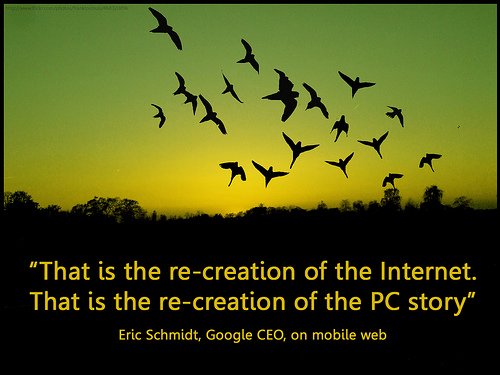

Last week we attended two public lectures on mobile access. The first presentation by Dr Rohan Samarajiva was based on research done in South and Southeast Asia. Mobile usage in these countries is growing fast. Samarajiva’s study was focused on mobile usage by the poorest people in 5 Asian countries. He was able to present some very interesting statistics and identify trends which were linked to social and historical factors.
I particularly enjoyed Samarajiva’s analogy of the mobile device becoming the cigarette of the 21st century. A mere 30 years ago, it would be cigarettes distracting us in our cars, glued to our fingers, and being taxed to death by government.
Last week Wednesday we attended the opening lecture of the Researching mobile media in SA Workshop. The keynote was led by by Vincent Maher the creator of the popular Grid website, and the man responsible for social media at Vodacom. Maher really drove home the growth in mobile internet access, especially in SA. SA is currently the third largest mobile internet using population in the world, with nearly 6.5 billion mobile page impressions in December last year. That last figure had grown exponentially throughout the months of last year.
It is clear why this is happening, devices are becoming more advanced and the mobile browsing experience has become richer, websites are being tailored for mobile devices-scaling down on graphics and using more and more XML so more browsers can be used, and people are on the go more often than ever and the mobile is always available and becoming more reliable. Most importantly however, mobile internet in South Africa is among the least expensive in the entire world, whereas traditional desktop access is still among the most expensive! (Good News SA)
The browsing experience is definitely richer than it once was on a mobile device. There are so many factors here, what kind of phone, OS, browser, etc which can change the user experience. Overall, I think much progress has been made and certain popular sites like google and facebook have done an excellent job simplifying their sites for mobile access.
Maher states that if you hold a mobile in your hand within a few inches of your face you are almost replacing a full size monitor a couple feet away. Certainly, as mobile screen sizes get larger and more detailed they will become as good as the desktop experience.
What I found particularly interesting were some of the statistics from marketing researchers such as Admob in the U.S. They found that mobile access users are more likely to click on advertisements then desktop users. Certainly that would ring bells for any online advertising company.
Maher went on to explain how the interruption rate for mobile devices tends to be lower. Many of the mobile browsers I have experienced do not allow tabs – which nearly all desktop browsers now do, you have slimmer chance of pop ups, less change of other applications running, no system tray, etc. I know that when I am working on a desktop machine I am constantly paging through web tabs, bouncing over to office apps, etc.
Maher also talked about the higher attention rate on mobile devices. People have been proven to read more and for longer periods of time on their mobile! Consider when mobiles are being used, on the bus, waiting for a friend, time that needs filling – so people are devoting their ‘in between‘ time to their mobile.
Besides the technology breaking boundaries on what can be done on a mobile device, people are accepting the mobile as an extension of their own body, their self image, a conduit for personal connections. The mobile is a private place and can be browsed in discretion and hidden from sight if necessary.
Truly SA is a mobile generation – did you know that more people voted using their mobile for Idols-SA then in the last election? Mobile access nowadays is just more accessible for the masses. These are important lessons for the OER project. I believe that we must keep the mobile in mind as potentially a primary means of access for at least some of our resources.
References: Mobile internet users exceed PC users, Thursday, 27 November 2008, Good News South Africa (http://www.sagoodnews.co.za/science_technology/mobile_internet_users_exceed_pc_users.html)
